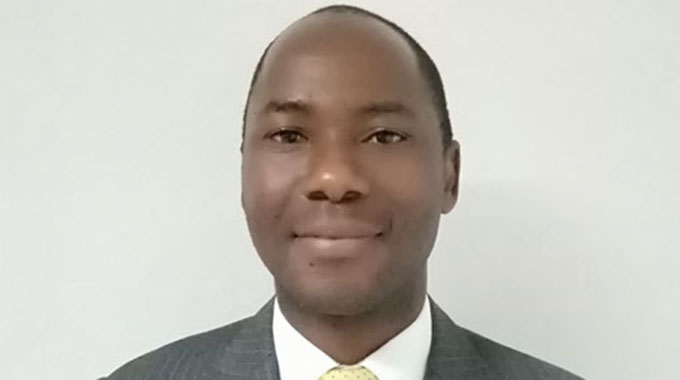Menace of trial by social media

Anver Versi Correspondent
Antagonistic social media trolls seem to have focused their ire on one of Africa’s greatest financial institutions at a time when the continent needs to pull together.
They must be exposed as the chief trouble-makers they are.
One of the features of our digital age is the enormous power of social media to influence our opinions and even our world views.
While most social media exchanges are to do with sharing gossip, music, jokes, comments and so on, it has also become a powerful political and economic tool – sometimes with well-meaning outcomes such as speaking truth to power or highlighting abuses of power but also sometimes with clear agendas aimed at destroying reputations or casting aspersions on individuals or organisations.
We have all come across both these manifestations of social media. The use of emotive language, false equivalence, outright lies and doctored images to twist and distort the truth has become such a menace today that social media platforms, like Facebook, Twitter, and WhatsApp now have specialised departments to fact-check items posted on their sites.
But of course, many have admitted that their efforts so far have been like trying to push back an overflowing river using a broom.
The net result is that the ordinary person, bombarded on all sides by often contradictory versions of events or their interpretations, finds themselves hopelessly confused.
Many retreat to the safe haven of officially licensed news organisations — newspapers, TV and radio, where stories are not posted anonymously and where a raft of regulations ensure that the media can be held accountable to the veracity of the information they release into the public realm.
Nevertheless, for those less discerning or unable to afford mainstream media outlets, social media remains the prime source of information about their world.
And it is here that a great deal of mischief can be caused. There is an English phrase — ‘give a dog a bad name and hang it’. It means that it is difficult to shake off a bad reputation, even if it is unjustified. The only remedy is to set the record straight, to present the truth and to expose distortions.
There has been a steadily growing menace of trial by social media, based on half-baked facts or total ignorance of context, to try and tarnish some of our most important banking and finance institutions.
Credibility is an uncompromisable aspect of banking. Attack a bank’s credibility or competence, even without proof, and you sow the seeds of doubt.
Industry’s human touch
Africa’s banking industry is probably the most improved and stable industry in the world. Of course there are bad apples, but which collective is without those?
In fact, over the past decade or so, and especially during the Covid-19 crisis, African banks and major continental institutions have acted with great alacrity, nimbleness and with the kind of human touch that is often missing from finance houses.
While the powerful rich countries of the world have been able to print trillions of dollars to tide their economies over, through the pandemic-induced slump, African countries have had to make do with pitiful amounts to help with the virus.
If they need any more, they have to borrow at a time when the short debt-service repayment holiday is swiftly drawing to a close.
The lesson for us must be that when the chips are down, as in the case of the pandemic that affects all countries, it is everybody for themselves. All the noble sounding sentiments from the developed world about helping Africa are just that — sentiments, nothing more.
Africa must rely on Africa. By and large it has done so admirably and its pan-African institutions such as the African Development Bank have responded to the urgent needs of their member countries in many cases.
The Islamic Development Bank, it must be said, has also been a stalwart supporter.
In this context, the African Export-Import Bank (Afreximbank) has done some sterling work even if a lot of this has gone under the radar. Just to mention a few examples: in August, the bank committed $400 million to Mozambique’s LNG project; in the same month, the bank and the European Investment Bank made €300 available to alleviate the impact of Covid-19 on women in business and in September, the bank disbursed $200 million to Zenith Bank Nigeria under its Pandemic Trade Impact Mitigation Facility.
We mention this because the Afreximbank has recently come under fairly sustained criticism over its policy to lend to Zimbabwean key sectors such as mining, agriculture, tourism, power and financial services over the past few years. In addition to the social media chatter, a couple of international news outlets have also turned their ire against the bank for what, reading between the lines, they claim is reckless lending.
Some individuals, Africans themselves, appear to have joined in the ‘witch hunt’ and instituted their own social media kangaroo courts based on out-of-context snippets from news agencies.
This is unfortunate. At best it is a harmless distraction that will move on once the posters have got bored with their assaults; at worse, it can cloud issues and be divisive at a time when all of Africa and its institutions need to pull together.
This is a dangerous myth at a critical time and it must be exposed for what it is.
Sound of closing doors
Zimbabwe, as we know, continues to draw the ire of the Western media whatever it does — or doesn’t do. Its economy has been in affected negatively and it has received no real support to reboot its systems.
This is something that has been done as routine in many Western — and Eastern — countries that have found themselves on the economic downward slope.
But not for Zimbabwe.
In April, Zimbabwe’s Finance Minister Mthuli Ncube appealed to the IMF, The World Bank, the Paris Club and the European Investment Bank for an arrears-clearance programme and debt relief.
What he got was the sound of doors shutting in his face.
Clear your arrears, he was told and institute political reforms. The country has debts of around $8 billion. It has done its best to stick to repayment programmes but to no avail.
Zimbabwe is 14,5 million people who need food, fuel, clothing, fertilisers, seeds to replant following the drought and a million other essential items. Without international credit, it is impossible to survive as decent human beings.
While the world does not care, Africa at least does.
Afreximbank, concerned more about the welfare of the citizens and less about politics, has extended support to key sectors to stabilise the Zimbabwe economy and sustain its trading lifeline: roughly $1 billion in 2017 and another $250 million three-year credit facility in July.
This has allowed the country to function instead of seizing up, especially in the pandemic lockdown regime. For coming to the aid of one of its earliest member states, the bank is being castigated as a reckless lender.
It is not.
It is fulfilling its deepest commitment to support African nations. Unlike outside lenders that blow hot and cold depending on international whims, Afreximbank has always been part of the solution and never been part of the problem.
If this is what it is considered to be guilty of, we cannot allow this unjustified calumny against one of our greatest institutions to stand. — African Banker magazine.








Comments